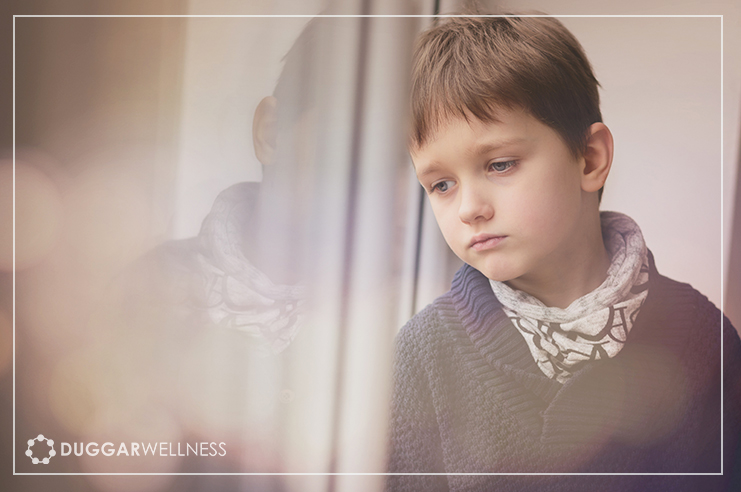As the new year begins, we may be trying to create new and better routines. But it is the dead of winter. It’s cold and dark, and we all long for a beach with white sand and surf. How do we fight the urge to sleep the rest of the winter away? How do we break through the effects of Seasonal Affective Disorder (S.A.D.)?
For the record, I am generally super optimistic and happy, but even for me, it seems like it takes more effort to maintain that happiness during the winter months, and I know that some of you aren’t so fortunate. If you or a loved one struggles with feelings of depression or the “winter blues,” here are some important scientific concepts that are helpful to understand.
The Perfect Storm
First, it is essential to realize that virtually every patient that I test is deficient in vitamin D. You probably know that vitamin D is the “sunshine” vitamin. Even during the summer, I find that many people don’t get exposed to the sun enough to maintain healthy levels of this vital chemical. During the winter months, most people go for weeks without ANY meaningful exposure to natural sunlight. This causes your vitamin D levels to plummet, and this has implications on many aspects of your health. Not the least of which is your immune function and your mood. Vitamin D is a powerful hormone that regulates 2000 genes in your body. If you don’t have adequate vitamin D, you can’t be physically or emotionally healthy.
The second point to grasp is that our brains require natural sunlight exposure to stimulate the production of melatonin and its close cousin, serotonin. I know that you’ve heard of these chemicals before, and you probably know that they affect your sleep/wake cycles and your ability to feel happy and satisfied with your life. Ever since the invention of electric lighting, our lives have become more and more distanced from the natural circadian rhythms of the planet. Instead, we are using artificial light to prolong our workdays and often watching blue-light emitting screens well into the late evenings. While this is great for productivity, more and more research is proving that it has a terrible cost to our health. These artificial signals tell our brains that it is still “awake” time, and we continue to produce neurotransmitters and hormones that keep us alert. In this state, it becomes nearly impossible for people to fall asleep, and even when they do, it decreases our ability to get adequate REM sleep at night. REM-sleep deprivation has a direct relationship to feelings of fatigue, depression, and other hormone imbalances.
Third, because of the weather and the poor air quality (at least in Northern Utah where I live), it is unwise to go outside to exercise. We become incredibly sedentary. Who wants to go freeze their tuckus off? Not me. So what are we going to do? We’ve got to create some new strategies for movement, and that can be hard to do.
And that, ladies and gentlemen, is what is called a “perfect storm.” Each of these obstacles in their own right is a cause of depression and blues, so you can see how when they all hit at the same time, even those who are ordinarily chipper and bright can get off their game.
So what are we to do?
I think you are all smart enough to answer that question. As any 12-stepper could tell you, “the first step is admitting you have a problem,” and by that, I mean that we ALL need to admit that we have a problem. Once we have an awareness, the answer is as simple as 1-2-3.
Step 1
Do you know your vitamin D status? Is it below normal? Is it below optimal? (you know those are two different things, right?) If so, take some direct action. Get on a high-quality supplement. Take a vacation to someplace where the sun isn’t hiding. Even visit a tanning bed a few times.
Step 2
Pay attention to the normal rhythms of the earth. Invest in a “lightbox” that produces full-spectrum light. Sit in front of that box each morning and periodically throughout the day. As the evening starts, turn down your bright lights and limit computer/TV screen usage or use some blue-blocking glasses.
For more ideas on ways to fill your home with positive energy check out these ideas from Tammie.
Step 3
Get moving again. You know that supplements are most effective when they are supporting a balanced healthy diet. Well, exercise is just the same. The benefits of exercise are a “supplement” to a great diet of general movement. Remember, you can’t have the butt you want if you are sitting on the one you’ve already got! If you need some suggestions on how to get moving, check out this article, or this one, or google “how to increase your daily activity,” and you’ll find dozens of ideas. By adding 15-20 minutes of exercise 3 times per week, you will have done far better for your mental outlook and happiness than any anti-depressant has ever done for anyone.
 160 N Main, Bountiful, UT 84010
160 N Main, Bountiful, UT 84010  801-677-7878
801-677-7878

One response to “Don’t Be S.A.D.”
[…] Previously we’ve highlighted the important role of UV light in stimulating Vitamin D production as well as the impact of blue light in setting a healthy circadian rhythm for the regulation of sleep and stress hormone health. […]